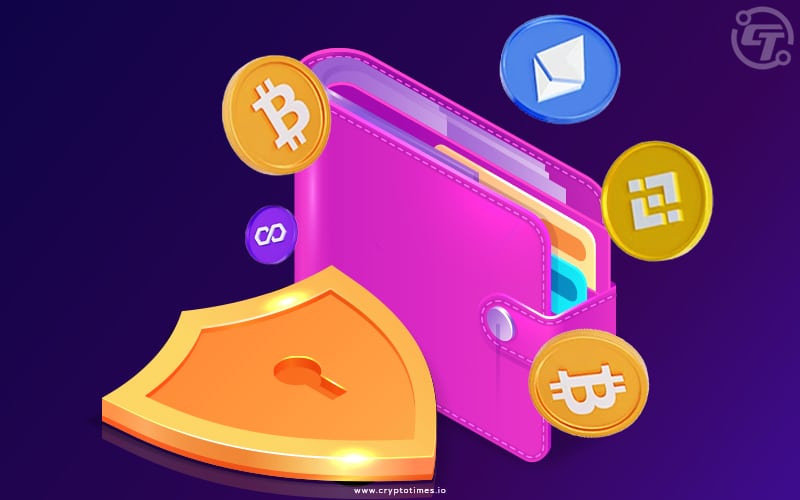Most beginners in the crypto world are just excited about the prospects of buying, selling, and holding cryptocurrencies. Not many amateur traders think of how the crypto they own gets stored or secured against the many cybersecurity threats.
A majority of crypto exchanges have also developed their own crypto wallet capabilities thereby giving crypto traders a one-stop-shop solution. For instance, OWNR Wallet, a company licensed to provide digital currency exchange services also provides crypto wallets services through the Ownr crypto wallet app.
However, the questions, or rather concerns most crypto traders have, revolve around the security of their digital tokens. How secure are virtual currency wallets and are there chances they could be compromised? Read on for more information on this.
Crypto Wallet Security
According to FTC reports, social media and cryptocurrencies are a combustible mix for fraud. Since 2021, almost half of those who reported losing cryptocurrency to a scam stated the scam began with an advertisement, post, or message on a social networking website .
Scammers are also deploying different techniques including phishing to steal funds from their victims.
Also Read: FTC Claims Crypto Scams have Cost People over $1B Since 2021
Hacking projects are now executed through a mechanism called haustorium. This structure involves a team of accomplished people with diverse skills who come together to find solutions that are much more advanced.
For this reason, digital wallets must be well-secured to prevent compromises leading to an unauthorized transfer of crypto from one account to another.
Crypto Wallet Vulnerabilities
Whether you are using web, mobile, or desktop wallets, there are certain platform weaknesses that cybercriminals can easily exploit.
For instance, crypto wallets do not ascertain whether the device you are logging in from is secure-not jailbroken, or rooted. This means potential threats hiding in your device including malicious apps can easily creep into your wallet infrastructure and gain access to critical information.
Through phishing, malicious software can gain access to sensitive user information including private key details. With private key information, hackers can take possession of your wallet and all the crypto contained therein.
How to Enhance Crypto Wallet Security
There are several measures you can take as a crypto trader to ensure your crypto wallet is secured from scammers. Here are some tips to start you off.
1. Sign Up for Two-Factor Authentication
Two-factor authentication or 2FA is one of the best ways to guarantee the security of your wallet password. Before you log in and access your digital assets, you’ll have to go through an access control mechanism comprising two factors. The first factor is your PIN, and the second is a text message or email with a code sent to a device you own to verify your identity.
2. Avoid Public Wi-Fi
Internet connections are the conduit for the spread of malicious software. Whenever you are logging onto your wallet, ensure that your connection is secure. If you can, avoid using public Wi-Fi as they are the most compromised.
To further camouflage, use a virtual private network (VPN). A VPN not only hides your IP (internet protocol) address but also ensures DNS leaks are avoided at all costs.
3. Keep Your Primary Wallet Key Backups
Cryptocurrencies, unlike fiat, are not backed by any government or agency out there. In the event of a loss, the trader or investor suffers the full scale of the financial loss. To ensure this predicament doesn’t happen to you, keep a backup of your private keys to secure your wallet.
In case you lose access to your wallet due to malware attacks or authentication failure, you can quickly restore your backup and regain access.
4. Encrypt your wallet:
When you encrypt your wallet, you can assign a password to anyone attempting to withdraw funds. Although it cannot guard against keylogging hardware or software, this helps deter burglars. Never compromise your password, otherwise you risk losing your money forever. Make your password strong by including many characters. In fact, even after using your password seldom for a long time, you ought to be able to recall it.
Maybe jot it down on parchment and save it securely in your vault!
5. Multi-signature to protect against theft :
A transaction can now require numerous independent approvals thanks to the multi-signature functionality of digital currency. Additionally, some web wallets offer multi-signature wallets, which give the user control over their money while preventing a thief from withdrawing funds by hacking into just one device or server.
6. Understand The Security Measures of Your Wallet Provider
Before signing up for any crypto wallet service, check that their security features are up to the task. If you can, read their reviews and get to hear what other users are saying. Avoid wallets whose security measures are questionable or inadequate. For instance, some crypto wallet apps give you the option to create more than one account in the same app. These accounts work independently and serve to diversify your holdings in case of a security breach.
Conclusion
The safety of digital currencies is the backbone of crypto trading. With many digital wallets offered, traders must be careful to only sign up for wallets that have adequate security measures. That being said, the responsibility of ensuring the 2FA, private key backups, and secure internet connections are in place, rests on you as the trader.






